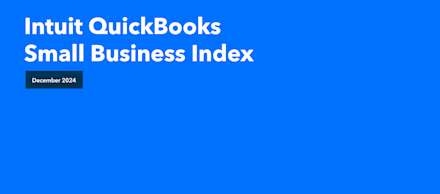
Intuit QuickBooks Small Business Index, December 2024
Simple, smart accounting software - no commitment, cancel anytime

PAYROLL
Running a payroll can be complicated, difficult and rather time consuming. As the only employee within a director only business, you may not have the time you need to do this properly. There are also a variety of ways you can pay yourself so keeping up to date with the rules surrounding each method can be tricky.
That being said, it’s crucial to keep on top of it. Not only do you want to ensure compliance with HM Revenue & Customs (HMRC) and avoid hefty fines, a good payroll & accounting software saves you time, money and stress.
Read on to learn what a director only business is, how you can pay yourself, whether or not you need to be PAYE registered and how you can benefit from using payroll accounting software to manage your payroll.
Director only businesses are limited companies with no other employees. Most limited companies have employees, however there isn’t a legal requirement to hire anyone to work for your business. It’s an extremely flexible business structure, so hiring employees depends entirely on the needs of the business.
It’s not uncommon for a business to operate without employees. According to the Office for National Statistics (ONS), there were 5.6 million UK private sector businesses at the start of 2021. Of the 5.6 million, 4.2 million had no employees. Therefore, only 25% of private sector businesses in the UK employed someone aside from the owner(s).
Within a director only business, there are several ways directors can pay themselves. These are through: a salary, dividends, expenses, directors loan and pensions.
Because there are various ways a director’s pay is managed, payroll software can be extremely helpful in keeping track, managing tax and managing national insurance contributions, among other things. If you need to be registered with HMRC, you must also use compatible payroll software.
When a director takes a salary, this is paid on a regular basis (e.g. weekly or monthly). By paying themselves a salary, it not only covers their personal expenses but ensures their Income Tax & National Insurance contributions are made too.
In order to claim state benefits through a salary, such as state pensions, there are minimum national insurance requirements that have to be met.
Payroll software makes salary payments and PAYE more manageable, automated and simpler to keep track of. If this is how you pay yourself, or plan to, scroll down to see all the benefits of payroll software for a director only business.
Another way directors pay themselves is through dividend payments. These are reported on a self-assessment and should be made on a less frequent basis than a salary, most commonly quarterly or once or twice a year.
If dividend payments are paid on a more frequent basis, then HM Revenue & Customs (HMRC) can consider this “income” and will subject it to Income Tax & National Insurance assessment.
It can result in the director being liable for income tax & national insurance contributions due to HMRC.
Finally, the other way directors of a director only business can pay themselves is through expenses, directors loans and pensions.
Expenses incurred in running the business are usually allowable in reducing the company Corporation Tax liability. There can also be other allowances available through methods such as Research & Development.
A directors loan is when you (or other close family members) get money from your company that is not: a salary, dividend, expense repayment or money you’ve previously paid into or loaned the company. When a director or family member takes a loan from the business, you must keep a record of any money you borrow from or pay into the company - this record is usually known as a ‘director’s loan account’.
A director can also set-up a personal pension for themselves which they can pay into directly. Alternatively, they can set-up a workplace pension which is paid via their payroll. This will enable the employer/business to make a payment into the pension as well as the individual (director/employee).
Managing expenses, directors loans and a workplace pension is made simpler with payroll software - even just for one employee. Payroll software can help to make these types of payments more manageable, automated and simpler to keep up to date.
As a director only business, you will have to register as an employer with HM Revenue & Customs (HMRC) and set up Pay As You Earn (PAYE) Online (using payroll software) if at least one of the following conditions is met:
You are paid more than £123/week (£533/month, £6,396/year)
Receive expenses and benefits
Already receive a pension or have another job
Due to the legal structure of the business, the director is considered the owner but is also considered an employee. As a result, the director must be PAYE registered in order to take a salary from the business.
This differs to the legal structure of sole traders as they can simply take drawings from the business and file this through self-assessment. Sole traders complete an annual self-assessment return which results in a calculation of the Income Tax and National Insurance due (Class 2 and possible Class 4 NICs). Learn more about accounting for sole traders.
If you are paying anyone over the LEL then you have to use payroll software as it is a legal requirement to submit a Full Payment Submission via Real Time Information on or before the pay date.
As a director only business, payroll accounting software from QuickBooks can automatically work out your income tax deductions and National Insurance Contributions (NICs). This takes the need to number crunch out of the process and it can also be used to track expenses, bonuses and pensions.
With payroll software, you don’t need to worry about staying up to date with current tax rates and responsibilities as a director. The payroll software from QuickBooks tracks all the latest regulations automatically, dealing with issues including updated tax codes, and changes to rates and thresholds ensuring correct income tax and NIC is made every time.
It makes your weekly or monthly salary calculations as a director simple and compliant.
When all the number crunching is handled by your payroll software, the risk of human error, leading to potentially costly mistakes, is removed.
With payroll software from QuickBooks, it’s so much easier to meet your deadlines and make payments to HMRC in plenty of time with built-in reminders.
Payroll software from QuickBooks includes automatic tracking, recording and reporting. These features help to make the year-end less stressful so you can track annual payments and forecast next year’s budget all in one place.
QuickBooks online payroll offers a great choice of secure payroll accounting solutions that supports smaller, simple payrolls.
When it comes to year end, it makes sense to simplify your payroll. Instead of spending time to process your pay, spend time concentrating on what really matters - growing your business.
9.00am - 5.30pm Monday - Thursday
9.00am - 4.30pm Friday